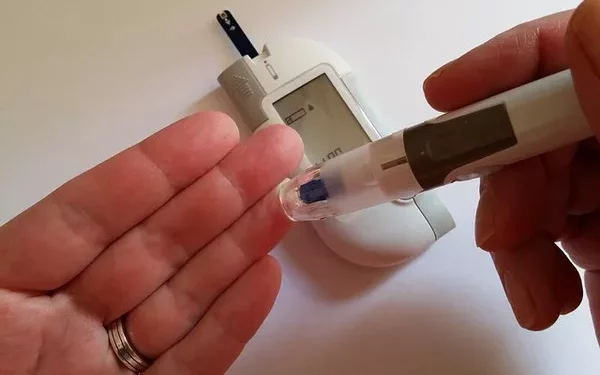When you wake up in the morning, one of the most important things you might need to keep track of as part of your diabetes management is your blood sugar level. Blood sugar, also known as glucose, is a key indicator of how well your body is managing its energy and whether your diabetes is well-controlled. Blood sugar levels fluctuate throughout the day, and the level you measure first thing in the morning can provide valuable insight into your overall blood sugar management.
As a person with diabetes or someone caring for a loved one with diabetes, understanding what your blood sugar levels should be in the morning can make a significant difference in how you approach your day, how you manage your diet, and how you adjust your medications. In this article, we will explore what normal blood sugar levels are for people with diabetes, factors that influence morning blood sugar readings, and how to manage your blood sugar levels to stay healthy.
Understanding Normal Blood Sugar Levels
To better understand what your morning blood sugar levels should be, it’s essential to first define what “normal” blood sugar levels are. For people without diabetes, the body is able to regulate blood sugar levels automatically, ensuring that they remain within a healthy range. This is not always the case for people with diabetes, who may experience difficulty regulating their blood sugar due to issues with insulin production or insulin resistance.
Normal blood sugar levels for non-diabetic individuals:
Fasting blood sugar (when you haven’t eaten for 8-12 hours): 70-99 mg/dL (3.9-5.5 mmol/L).
Postprandial blood sugar (2 hours after eating): Less than 140 mg/dL (7.8 mmol/L).
For people with diabetes, the goal is often to keep blood sugar levels as close to the normal range as possible, although this can vary depending on individual factors, such as age, overall health, and any complications related to diabetes.
Normal blood sugar levels for people with diabetes:
Fasting blood sugar (before eating breakfast): 80-130 mg/dL (4.4-7.2 mmol/L).
Postprandial blood sugar (2 hours after eating): Less than 180 mg/dL (10.0 mmol/L).
These ranges are often used as general guidelines, but it’s important to note that your healthcare provider may have different targets based on your specific needs.
What Happens to Blood Sugar in the Morning?
For people with diabetes, the morning hours can sometimes present a challenge for blood sugar regulation. Several factors contribute to morning blood sugar levels, including the dawn phenomenon, somogyi effect, and the body’s natural rhythm of hormone secretion.
The Dawn Phenomenon
The dawn phenomenon refers to the natural increase in blood sugar levels that occurs in the early morning, typically between 2 a.m. and 8 a.m. This increase is partly due to hormonal changes. As the body prepares to wake up and start the day, it releases hormones such as cortisol and growth hormone. These hormones can cause the liver to release glucose into the bloodstream. In a person without diabetes, the body would release insulin to counteract this rise in blood sugar. However, in people with diabetes, the insulin response may not be adequate, leading to elevated blood sugar levels upon waking.
The Somogyi Effect
The somogyi effect, also known as “rebound hyperglycemia,” occurs when blood sugar levels drop too low during the night (often due to too much insulin or not enough food before bed). In response, the body may release stress hormones (such as adrenaline and cortisol) to increase blood sugar levels. This can lead to elevated blood sugar levels in the morning.
The somogyi effect can be hard to identify because it occurs at night and may not be noticeable without checking blood sugar levels during the night. If you suspect you’re experiencing the somogyi effect, talk to your healthcare provider about adjusting your insulin or medication schedule.
Hormonal Changes
Hormones play a key role in regulating blood sugar levels. In the morning, as part of the body’s circadian rhythm, the body naturally prepares for the demands of the day. Hormones like cortisol, epinephrine, and growth hormone increase in the early morning hours, which can trigger the release of glucose from the liver. These hormonal changes can contribute to higher blood sugar levels during the night and into the morning.
What Should Your Morning Blood Sugar Be?
So, what should your blood sugar be in the morning if you have diabetes? As mentioned earlier, fasting blood sugar levels should ideally fall between 80-130 mg/dL (4.4-7.2 mmol/L). However, it’s important to note that these values can vary depending on individual circumstances. Some people may experience higher blood sugar levels in the morning due to the dawn phenomenon, and others may experience lows due to the somogyi effect.
Here are some general guidelines for interpreting your morning blood sugar levels:
Below 70 mg/dL (3.9 mmol/L): If your morning blood sugar is consistently lower than 70 mg/dL, you may be experiencing hypoglycemia (low blood sugar). Hypoglycemia can cause symptoms such as shaking, sweating, confusion, and dizziness. It’s important to address low blood sugar promptly by consuming a fast-acting carbohydrate such as fruit juice or glucose tablets.
70-130 mg/dL (3.9-7.2 mmol/L): This range is generally considered within the target range for fasting blood sugar. If your morning blood sugar falls within this range, it typically means your diabetes is well-managed.
130-180 mg/dL (7.2-10.0 mmol/L): Blood sugar levels in this range may indicate that your diabetes is not optimally controlled. If you’re consistently seeing higher blood sugar levels in the morning, it may be due to factors such as the dawn phenomenon, inadequate insulin or medication dosage, or poor dietary choices the night before.
Above 180 mg/dL (10.0 mmol/L): Elevated morning blood sugar levels above 180 mg/dL may indicate that your blood sugar is not well-controlled and further adjustments to your treatment plan may be necessary. High morning blood sugar levels can increase the risk of diabetes complications, including nerve damage, kidney disease, and cardiovascular issues.
Factors Affecting Morning Blood Sugar Levels
Several factors can influence your morning blood sugar levels. It’s important to understand the various variables that can cause fluctuations, so you can better manage your diabetes and keep your blood sugar levels within the desired range.
Diet and Carbohydrate Intake
What you eat, and when you eat, plays a crucial role in your blood sugar levels. Consuming a large, carbohydrate-rich meal late in the evening can lead to elevated blood sugar levels in the morning, especially if you’re not taking insulin or other medications to cover the meal. On the other hand, skipping meals or not eating enough can cause low blood sugar (hypoglycemia).
Medications and Insulin
The type of medication you take, whether it’s insulin or oral medications, can also impact your morning blood sugar levels. For instance, taking too much insulin or not taking enough can cause either low or high blood sugar. If you’re on insulin therapy, the timing, dosage, and type of insulin used (rapid-acting, long-acting, etc.) can significantly influence your morning glucose readings.
Exercise and Physical Activity
Exercise can help lower blood sugar levels and improve insulin sensitivity, but the timing of your exercise matters. If you exercise too close to bedtime, your blood sugar may drop too low during the night, causing a rise in blood sugar levels in the morning due to the somogyi effect. Regular physical activity can help you maintain more stable blood sugar levels overall.
Stress and Illness
Stress and illness can cause an increase in blood sugar levels. When you are stressed, the body releases hormones like cortisol and adrenaline, which can cause your liver to release glucose into the bloodstream. Illness or infection can also lead to higher blood sugar levels as the body responds to the stress of fighting off the illness.
Sleep Patterns
Poor sleep or disrupted sleep can affect blood sugar regulation. People with diabetes who experience sleep apnea or other sleep disorders may have more difficulty maintaining stable blood sugar levels in the morning. Getting quality sleep is essential for blood sugar management.
Managing Your Morning Blood Sugar Levels
If you’re having trouble maintaining optimal blood sugar levels in the morning, here are a few strategies that may help:
Adjust Your Medication: If you suspect your morning blood sugar is too high due to the dawn phenomenon or the somogyi effect, talk to your healthcare provider about adjusting your insulin regimen or other medications.
Eat a Balanced Dinner: Avoid large, high-carbohydrate meals late at night, as these can cause blood sugar spikes in the morning. Aim for a balanced dinner with lean proteins, healthy fats, and fiber-rich carbohydrates.
Exercise Regularly: Incorporate regular exercise into your daily routine, but avoid exercising too close to bedtime. Aim for at least 30 minutes of moderate-intensity exercise most days of the week.
Monitor Your Blood Sugar: Regularly check your blood sugar levels to gain insight into how your body responds to different foods, medications, and activities. This will help you identify patterns and make necessary adjustments.
Manage Stress: Practice stress-reducing techniques such as deep breathing, meditation, or yoga. Chronic stress can negatively impact your blood sugar levels.
Get Enough Sleep: Prioritize good sleep hygiene to improve the quality of your sleep. Aim for 7-9 hours of sleep each night.
Conclusion
Understanding what your blood sugar should be in the morning is essential for managing diabetes effectively. By monitoring your morning blood sugar levels and making adjustments to your diet, exercise, medications, and lifestyle, you can take control of your health and reduce the risk of complications associated with diabetes. It’s important to work closely with your healthcare team to develop a personalized plan that helps you maintain optimal blood sugar control throughout the day.
Remember, managing diabetes is not a one-size-fits-all approach. Your target blood sugar range may differ based on your unique needs, so always follow your doctor’s advice and make adjustments as needed to stay healthy and feel your best.
Related topics:
What is the Test for Blood Sugar Monitoring


























